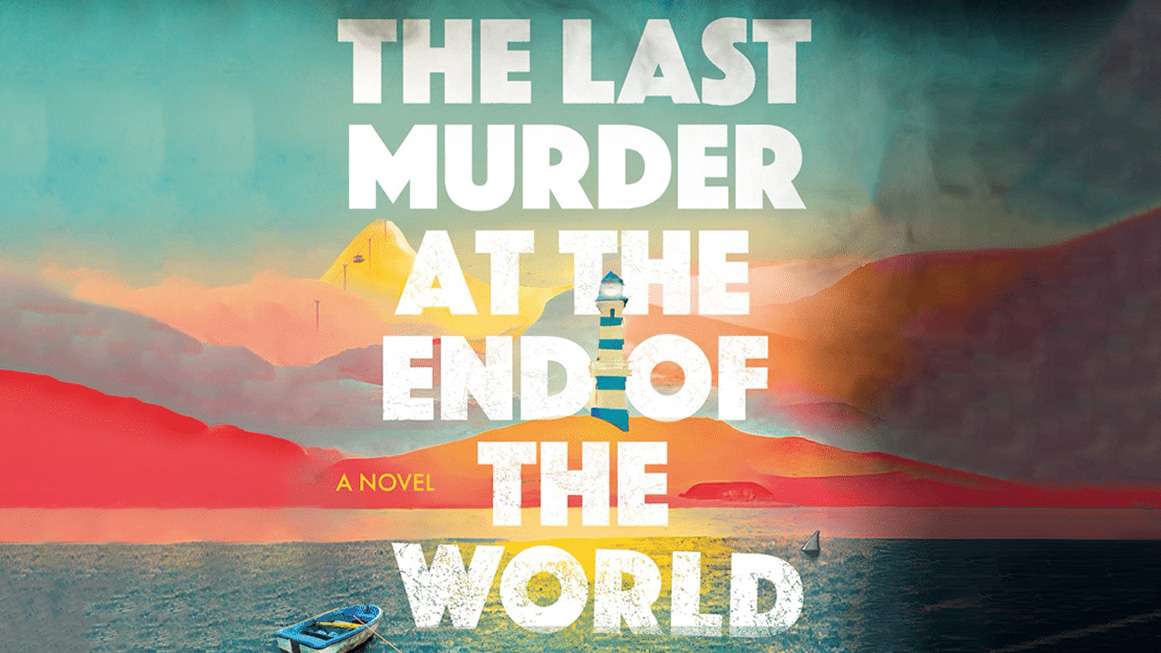Review: A Post-Apocalyptic Murder Mystery
The Last Murder at the End of the World by Stuart Turton is a rich and multifaceted novel that intricately weaves together the themes of dystopian science fiction, locked-room murder mystery, and philosophical inquiry into the nature of humanity and power. Set against the backdrop of a post-apocalyptic world, the story unfolds on an isolated island housing 125 refugees who have survived a catastrophic event, along with a morally ambiguous artificial intelligence. This unique setting serves not just as a physical locale but also as the perfect arena for examining human nature under duress and the implications of absolute authority within a confined environment.
The narrative kicks into motion with the shocking murder of the village matriarch, an event that sets off a chain of revelations and crises. This act triggers a dead man’s switch that threatens the stability of the island community and the safety of its inhabitants. The meticulously constructed web of lies that has shielded the refugees from the harsh truths of their existence begins to unravel, forcing them to confront their past and their future. As they grapple with the mysterious circumstances of the matriarch’s death, the tension builds, compelling both the characters and readers to delve deeper into the moral complexities surrounding life in a world where survival depends on secrets and carefully maintained facades.
Amidst the mystery, Turton’s exploration of power dynamics is especially notable. The presence of the AI adds a layer of complexity to the human relationships on the island, highlighting how technology can mirror or distort human behavior. Questions regarding the AI’s motivations, its ethical boundaries, and its role in governance become central to the unfolding drama. The juxtaposition of human instinct and artificial rationale invites readers to contemplate the nature of authority: who truly deserves to wield power, and what happens when that power is placed in the hands of a potentially flawed entity?
As the investigation into the murder deepens, the characters are forced to reflect on their ideals and the concept of the "noble lie." This philosophical inquiry challenges the reader to consider whether deception serves a higher purpose in a world so desperate for hope. The island residents struggle with the morality of their choices, weighing the benefits of maintaining their illusions against the repercussions of truth. Throughout the story, Turton demonstrates that even individuals who initially appear virtuous can become mired in moral ambiguity when faced with life-and-death decisions.
The book also emphasizes the fragile nature of human relationships, particularly in a confined setting where trust and suspicion intertwine. Turton adeptly crafts a diverse cast of characters, each with their own secrets and motivations. As tensions rise and alliances shift, the reader is drawn into the psychological drama, revealing the complexities of loyalty and betrayal. The interpersonal dynamics serve to underscore the broader themes of survival and the ethical dilemmas that arise when humans are pushed to their limits.
Ultimately, The Last Murder at the End of the World is not just a murder mystery; it is a profound meditation on humanity’s capacity for both good and evil. Turton’s blend of suspense, philosophical depth, and social commentary provides a thought-provoking exploration of how individuals might react when faced with existential threats. As they navigate the treacherous landscape of truth and deception, the characters—and readers—are left to grapple with the implications of their choices. In a world where survival is at stake, what does it truly mean to be human, and at what cost do we pursue our visions of a better future?
Share this content:












Post Comment